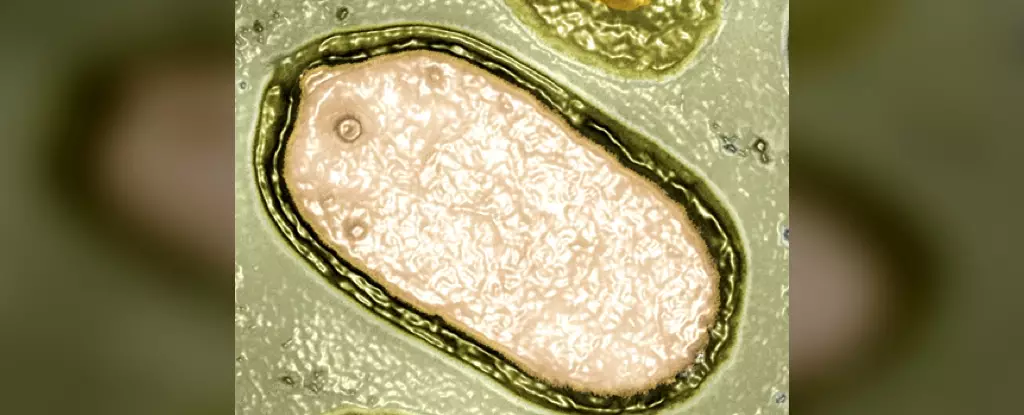In a groundbreaking study, scientists have unveiled a plethora of new giant viruses lurking in our oceans, igniting both excitement and concern. Led by marine biologist Benjamin Minch and virologist Mohammad Moniruzzaman at the University of Miami, this extensive research has revealed 230 previously unknown giant viruses, providing profound insights into the intricate web of marine life. The implications of this research stretch beyond the academic realm; they cast a spotlight on the fundamental role viruses play in the ecosystems of our oceans and the potential impacts on human health.
The discovery of these formidable microorganisms taps into the rich tapestry of life flourishing beneath the surface of our oceans. Protists—including essential contributors like algae and amoebas—are pivotal not just for marine biodiversity but for the entire biosphere, as they are integral to oxygen production and the carbon cycle. It is a stark reminder that while we often view viruses through a lens of harm and fear, they also wield immense power over their hosts and ecosystems.
A Double-Edged Sword: The Role of Viruses
Viruses, especially giant ones, are often seen as antagonists in our efforts to preserve oceanic life. However, this research unveils a more nuanced narrative. Moniruzzaman raises a vital point: understanding these viruses is essential for managing harmful algal blooms, which pose severe risks to human health and marine environments alike. By gaining insight into the dynamics of these viral interactions, we can better predict and potentially mitigate ecological disasters that arise from algal overgrowth.
Moreover, the revelation that some giant viruses can hijack the photosynthetic processes of their hosts introduces an intriguing layer to their complexity. Such viral behavior demonstrates a dark ingenuity: manipulating cellular functions traditionally reserved for living organisms. These findings challenge the fundamental perceptions we hold about life and viruses, inviting us to reconsider the very definitions that govern our understanding of biology.
The Challenge Ahead: Embracing Complexity
As Minch aptly articulates, this research has only scratched the surface of oceanic virology. Each drop of seawater contains countless viruses yet to be discovered, reflecting the immense biodiversity that remains largely unexplored. This hints at a future brimming with untapped scientific potential, where each new viral strain could redefine our comprehension of marine ecosystems. The methods employed in the study lay a solid foundation, indicating that our understanding of the ocean’s virosphere will only deepen as technology and research methods continue to advance.
However, it is crucial to approach these discoveries with tempered optimism. The interaction between viruses and their hosts is incredibly complex and often unpredictable. As researchers venture further into this largely uncharted territory, they must remain vigilant about the broader ecological impacts of these viruses—especially in the face of climate change and human-induced environmental stressors.
The Urgent Call for Action
The findings resonate with urgency: as we deepen our understanding of marine viruses and ecosystems, the parallels with human health are undeniable. Much like the intricate web that sustains life in the oceans, human health is inextricably linked to environmental health. The identification and characterization of these giant viruses can serve as a precursor to greater monitoring and intervention efforts aimed at tackling pollution and pathogens in our waters.
In an era where planetary health is under siege from myriad threats, this research underscores the necessity of a unified approach to science and environmental policy. It is a clarion call for the integration of viral research into broader conservation strategies. As scientists uncover the hidden roles of these viruses, policymakers must be prepared to act decisively based on scientifically informed insights, fostering collaboration across disciplines in the quest for sustainable solutions.
The ocean’s giants—both seen and unseen—play an irreplaceable role in the health of our planet. As we confront the myriad challenges ahead, it is vital to recognize the importance of preserving these delicate ecosystems. In doing so, we not only protect marine life but also ensure the well-being of future generations. The tide of discovery is rising, and it is up to us to ride this wave of knowledge towards a more balanced coexistence with nature.


Leave a Reply